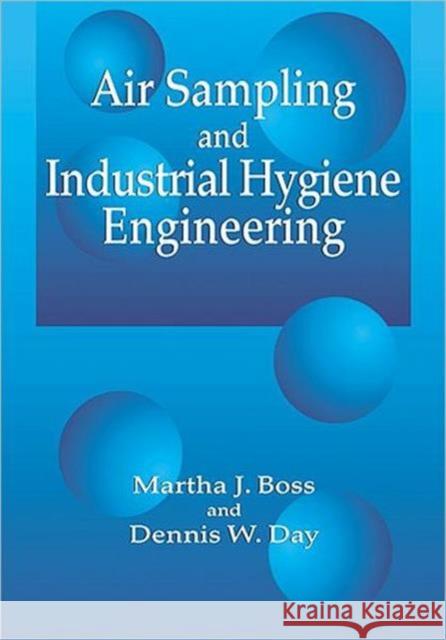Air Sampling and Industrial Hygiene Engineering » książka
Air Sampling and Industrial Hygiene Engineering
ISBN-13: 9781566704175 / Angielski / Twarda / 2000 / 296 str.
Air Sampling and Industrial Hygiene Engineering
ISBN-13: 9781566704175 / Angielski / Twarda / 2000 / 296 str.
(netto: 653,03 VAT: 5%)
Najniższa cena z 30 dni: 579,30
ok. 16-18 dni roboczych.
Darmowa dostawa!
The book presents sampling technology updated with today's tools - suc h as microcircuitry and remote sensing. The authors emphasize an inter disciplinary approach to understanding how air monitoring can adequate ly report current environmental conditions associated with outdoor med ia, indoor remediation efforts, proximal equipment, interior line moni toring, and the interrelationship of ventilation parameters. In additi on to providing the how-tos of sampling, this guide covers the basics of chemical risk assessment, biological assessment, engineering evalua tion of mechanical system design criteria, and chemical or process eng ineering hazard assessments. It presents the information using text, t ext outlines, graphics, and pictures - including cross sections of ins trumentation and side bars to elaborate on complex concepts.
We know certain chemicals cause problems in the workplace. The issues now are: Where do they occur in the workplace? How can we best evaluate them? What are the procedures for dealing with them safely? Many books simply define the problem and tell you that you need a program. Air Sampling and Industrial Hygiene gives you a guide to air sampling protocols from start to finish.
The book presents sampling technology updated with today's tools - such as microcircuitry and remote sensing. The authors emphasize an interdisciplinary approach to understanding how air monitoring can adequately report current environmental conditions associated with outdoor media, indoor remediation efforts, proximal equipment, interior line monitoring, and the interrelationship of ventilation parameters.
In addition to providing the how-tos of sampling, this guide covers the basics of chemical risk assessment, biological assessment, engineering evaluation of mechanical system design criteria, and chemical or process engineering hazard assessments. It presents the information using text, text outlines, graphics, and pictures - including cross sections of instrumentation and side bars to elaborate on complex concepts.
Faulty readings caused by poor sampling techniques can be very costly. This book provides the how-tos for making design engineering and on-site decisions as to instrumentation selection and scheduled usage. Air Sampling and Industrial Hygiene Engineering will allow you to complete the sampling process systematically and correctly from initial suspicions to the use of obtained results.











